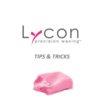Transitioning to a business owner by opening your own spa or salon is a huge undertaking, but in turn can be quite a rewarding experience. There is a lot to consider prior to taking the official leap to starting out on your own as running a successful spa will take more than just being a skilled Aesthetician. A great way to start thinking about opening your own spa is to prepare a detailed business plan. A solid business plan will help you to identify your potential costs and create a roadmap to guide you along the way. You should plan to revisit your business plan yearly as circumstances will change and the way you manage your business will as well. Updating your plan will remind you of where you planned to go with your business and allow you to adapt to the changing external environment.
Starting with a detailed business plan that aligns with your vision will generate an outline for you to refer to along the way. It will lay a strong foundation to build upon and will outline where you are, where you see your business going and your ideas on how you are going to get there. Although you will most likely have to reevaluate and adapt to various factors along the way this initial document will provide you with focus and guidance. Try and gather as much information as you can before writing your plan as this will help you to form an understanding of how you can be successful with your business. You may want to reach out to others who have started a business as they will have experiences to share. Most likely they will have some good insights including challenges they faced and how they navigated them. As you begin to write your business plan, here are a few important topics to help structure your business plan:
Executive Summary– an Executive Summary will be the very first thing that appears in the plan and will outline what your business is and describe the opportunity in detail. What size will your spa be? Will you have multiple service rooms? What services will you offer/ focus on? Who is your target market and how do you intend on reaching them? It is important to start your plan with an overview of your business so that you can clearly outline what it is your are building and working towards.
The Opportunity- what problem is your business solving? What has inspired you to want to start your own business? For example, you may have noticed that there are no spas or salons in your geographic area that offers waxing services. Perhaps you see a demand for a wax bar style spa. It is important to consider why you feel your business will be successful by first understanding why you want to start it in the first place. While thinking this through, it might help to look at who is your target market and where are they located. Performing a complete competitor analysis will allow you to understand who your competitors are and what services they offer. This information will provide you with insight on how you can create a business that will offer a unique value proposition and set your business apart from the competition. It is also in this section that you can outline where your spa will be located. Choosing a location can be a challenge as there are a lot of considerations that must first go into this decision. Performing research in the target areas such as speaking with local business owners and taking time to observe day to day traffic will provide you with a lot of insight in terms of foot traffic, busy times, low times, trends etc.
Marketing & Sales– How will you market your business? Marketing your business will drive your business growth. If you are leaving a spa and setting up your own business, it is always a good idea to review your current employment contract to ensure that you fully understand any non-compete restrictions that might be included. Are you able to market your new business to your current clients? These are all things to consider prior to stepping out as you will need to think creatively on how to build your own business and loyal clients. Take time to write down some ideas you have on how to market your spa from pre-opening to opening and then ongoing. Perhaps you want to look at partnering with other local businesses to help get the word out that you are opening. Consider using social media as it can be very powerful when it comes to spreading the word fast! Targeted ads will allow you to reach your market and geographic area effectively and accurately. Offering an opening special or new customer special is a great way to grab people’s attention and encourage them to come in and try you out. Loyalty programs are an excellent way to build client loyalty and keep your clients coming back. Clients can earn points for every visit which can be redeemable towards services or retail products. Additionally, referral programs are a great way to grow your client base which will be especially important in the beginning when you are just getting started. Offering customer service that stands out will help you build loyalty and trust with your clients so they will not only return for more services, but also tell their friends. Ensure that you are taking the time to follow up after with your clients after their appointments and checking in. You can also offer a discount on rebooking their appointment before they leave to encourage them to return and also allow you to plan your schedule in the future.
Operations- The operation of any business is the beating heart that keeps it going. Will you be hiring staff? What services will you offer? What booking system will you use? How will customers pay? Who will manage the supply orders? What product and brands will you be using in your spa? There are a lot of behind-the-scenes tasks that must be considered prior to opening your door to your first client. It may be helpful to reach out to a consultant in the industry or someone who has experience who can offer advice and ensure that you have not overlooked any important part of the operations. Be sure to allow enough time to plan prior to the official opening of your spa. Especially if you are leaving another location. There is lots to be done and giving yourself some time to plan will help to take away some of the stress that might arise when opening your own business. As part of the operations plan, you will also want to think about the hours that your business is open. Depending on who your target market is, these hours may change to accommodate your clients’ schedules. Reaching out to order products in advance and setting up accounts with them is a good way to make certain you have all the products you need for the opening. With all the delays in shipping occurring you want to make sure you are prepared and don’t run into any issues of product shortages.
Financial Plan- The financial side of your business is a key part of the initial planning process as well as the ongoing business. How will you fund your new venture? Create an initial budget which should include all start-up costs such as build out costs to fully understand the finances required to start your business. Ongoing expenses can be forecasted in a monthly cash flow statement. Putting together a detailed budget which includes a 6–12-month forecast will allow you to understand the businesses potential. Consider what your capacity is, what your revenue will be and what your expenses will be. Supplementing your service revenue by selling retail products is a good way to grow your bottom line with not a lot of investment. A lot of brands offer both backbar products and retail to support clients at home. Budgeting can get overwhelming, but there are a lot of tools and workshops available that you can find (often for free) on the internet that can provide some insight in preparing you to open your business. Once you have completed a financial plan and gained an understanding of the capital costs required, you may need to consider extra financing options. This might include friends and family or approaching a financial institution. It is helpful to look at all your options including the cost of borrowing and the timeline of payback.
Once opening day arrives and you welcome your first guest, you should take some time to be proud of what you have accomplished. Starting out on your own takes a lot of confidence, courage, and hard work. Although your business plan creates a valuable roadmap, as you begin operating it is always important to revisit that plan every year and adjust as needed. You can’t predict the future but being prepared to be able to adapt and make changes when needed will support the continued success of your business no matter what comes along.








